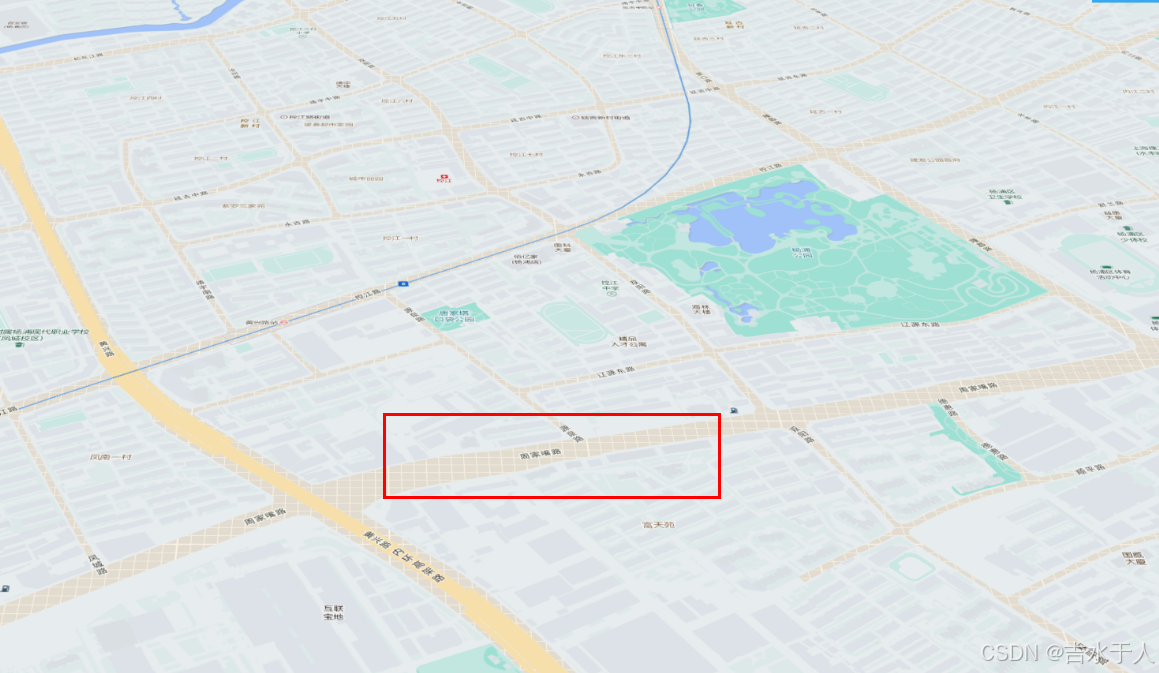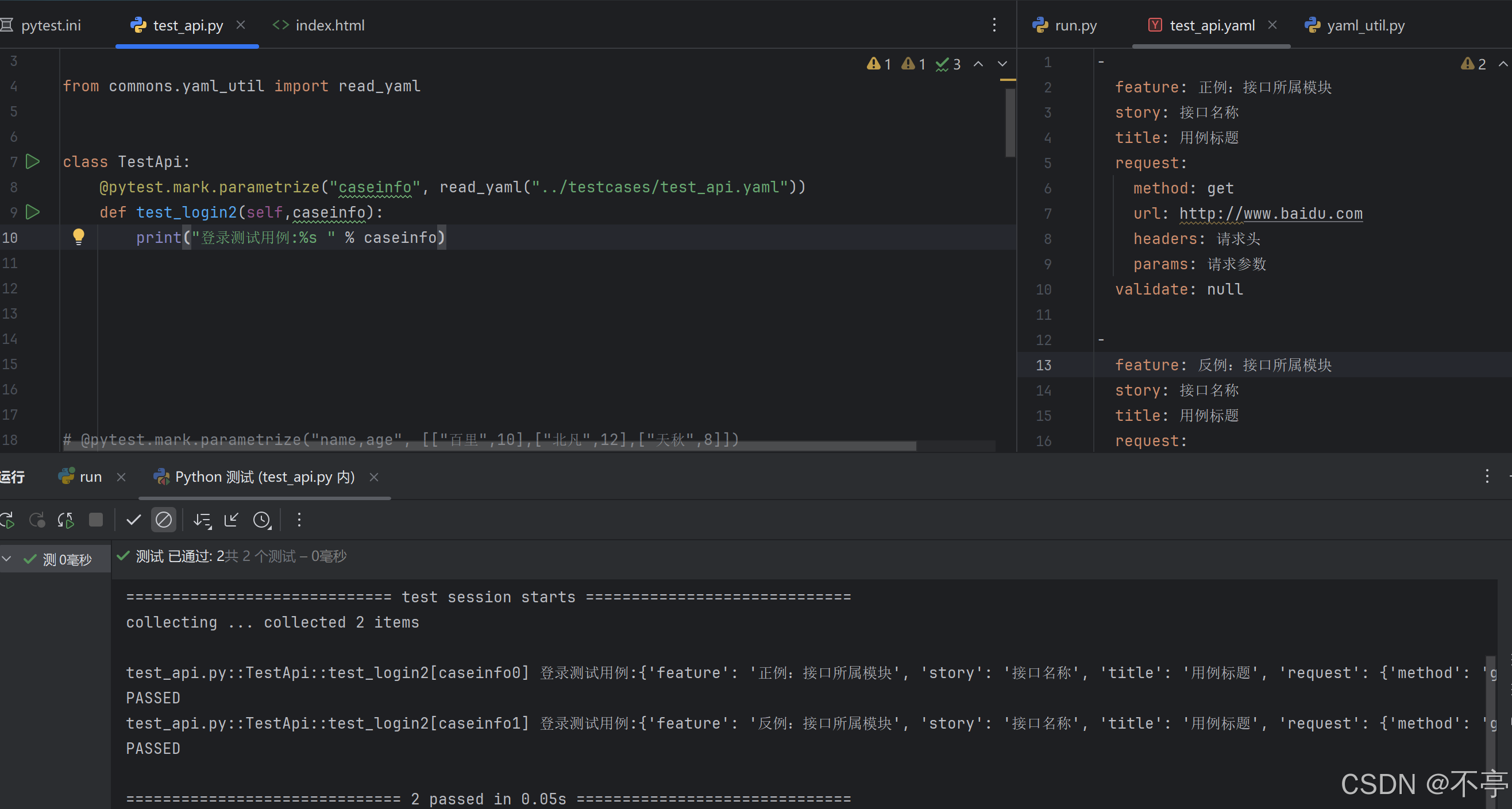目录
- 前言
- 一、NotificationObject与数据属性
- 创建个类,声明NotificationObject
- 二、DelegateCommand与命令属性
- 三、View与ViewModel的交互(难点)
- 在ViewModel文件下创建MainWindowViewModel
- 数据和方法绑定
- 资源指定
- 代码下载
- 四、优势体现
- 代码下载
- 更新时间
前言
参考文章:
参考视频:《深入浅出WPF》系列高清视频教程 | 讲师:刘铁猛
自己的感想

一、NotificationObject与数据属性
创建个类,声明NotificationObject
用于双向的数据绑定

internal class NotificationObject : INotifyPropertyChanged
{
public event PropertyChangedEventHandler PropertyChanged;
public void RaisePropertyChange(string propertyName)
{
if(this.PropertyChanged != null)
{
this.PropertyChanged.Invoke(this, new PropertyChangedEventArgs(propertyName));
}
}
}
PropertyChanged 事件:订阅者(如 UI 控件)通过监听此事件感知属性变化。
RaisePropertyChange 方法:手动触发事件,传递发生变更的属性名。
上面的RaisePropertyChange()方法可以优化:
public void RaisePropertyChange(string propertyName)
{
PropertyChanged?.Invoke(this, new PropertyChangedEventArgs(propertyName));
}
二、DelegateCommand与命令属性
做操作传输的命令属性命名为DelegateCommand
CanExecute决定命令是否可用
Execute执行命令的实际逻辑
CanExecuteChanged在命令的可执行状态变化时通知UI更新。

internal class DelegateCommand : ICommand
{
public event EventHandler CanExecuteChanged;
public bool CanExecute(object parameter)
{
if (this.CanExecuteFunc == null)
{
return true;
}
return this.CanExecuteFunc(parameter);
}
public void Execute(object parameter)
{
if (this.ExecuteAction == null)
{
return;
}
this.ExecuteAction(parameter);
}
public Action<object> ExecuteAction { get;set; }
public Func<object,bool> CanExecuteFunc { get; set; }
}
三、View与ViewModel的交互(难点)
NotificaitonObject.cs是ViewModel文件夹中类的基类。里面的其他类都要继承NotificationObject.cs类。
在ViewModel文件下创建MainWindowViewModel
internal class MainWindowViewModel : NotificationObject
{
//三个数据属性
private double input1;
public double Input1
{
get { return input1; }
set { input1 = value; this.RaisePropertyChange("Input1"); }
}
private double input2;
public double Input2
{
get { return input2; }
set { input2 = value; this.RaisePropertyChange("Input2"); }
}
private double result;
public double Result
{
get { return result; }
set { result = value; this.RaisePropertyChange("Result"); }
}
//1个方法
public DelegateCommand AddCommand { get; set; }
private void Add(Object parameter)
{
this.Result = this.Input1 + this.Input2;
}
public MainWindowViewModel()
{
this.AddCommand = new DelegateCommand();
this.AddCommand.ExecuteAction = new Action<object>(this.Add);
}
}
数据和方法绑定

<Grid>
<Grid.RowDefinitions>
<RowDefinition Height="Auto"/>
<RowDefinition Height="*"/>
</Grid.RowDefinitions>
<Button x:Name="btnSave" Content="Save"/>
<Grid Grid.Row="1">
<Grid.RowDefinitions>
<RowDefinition Height="Auto"/>
<RowDefinition Height="Auto"/>
<RowDefinition Height="Auto"/>
<RowDefinition Height="*"/>
</Grid.RowDefinitions>
<TextBox x:Name="slider1" Grid.Row="0" FontSize="24" Margin="4"
Background="LightBlue"
Text="{Binding Input1}"/>
<TextBox x:Name="slider2" Grid.Row="1" FontSize="24" Margin="4"
Background="LightBlue"
Text="{Binding Input2}"/>
<TextBox x:Name="slider3" Grid.Row="2" FontSize="24" Margin="4"
Background="LightBlue"
Text="{Binding Result}"/>
<Button Name="addBtn" Grid.Row="3" Content="Add" Width="120" Height="80" Command="{Binding AddCommand}" />
</Grid>
</Grid>
资源指定

public MainWindow()
{
InitializeComponent();
this.DataContext = new MainWindowViewModel();
}
代码下载
代码下载
四、优势体现
这种框架的优势体现在:逻辑功能不变的情况下,前端怎么改都可以很快实现功能,只要映射回原来的方法和属性即可。
下面就是直接将前端UI代码拷贝进来,后端不变,效果依旧是result = input1+input2.


代码下载
代码下载
更新时间
- 2025-02-11:创建。
- 2025-02-12:完善案例。



















![[LeetCode]day21 15.三数之和](https://i-blog.csdnimg.cn/direct/0de8ceb884aa4e55bb5cfe5aee0b1058.jpeg)